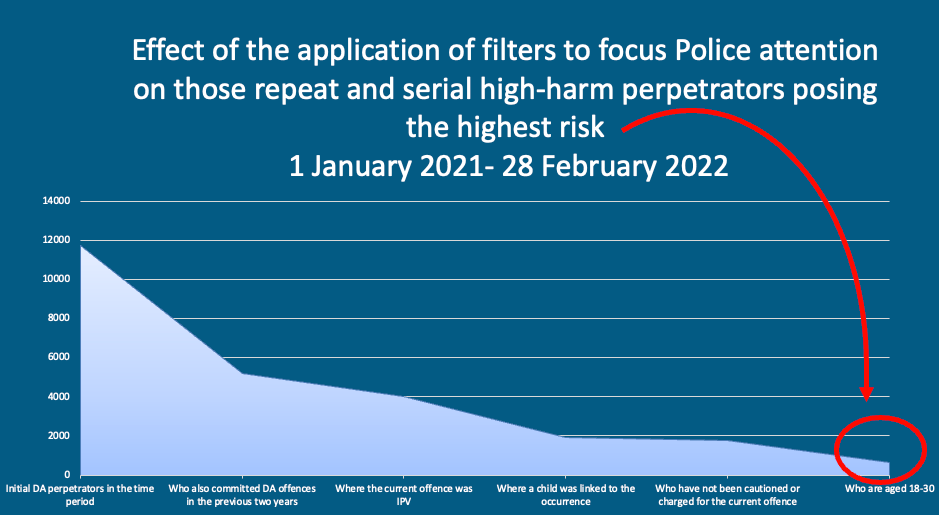ADOPTED PROJECT: High Harm Domestic Violence Perpetrator Pilot Evaluation
Chief Investigator: Dr Sara Morgan – University of Southampton Project
Team Members: Mrs Katerina Porter – University of Southampton, Mrs Fiona Maxwell – University of Southampton, Professor Julie Parkes – University of Southampton
Organisations Involved: Hampshire County Council, Hampshire Constabulary, Office of the Police and Crime Commissioner, Hampshire, The Home Office, Hampton Trust

Background data
Domestic violence & abuse remains a pressing public health concern
In the UK, 18% of adults aged 16+ have experienced domestic abuse from an intimate partner 1
In Southampton, domestic abuse accounts for 33% of violent crime
Methods
Analysis of routinely-collected anonymised quantitative data on all individuals meeting the Operation’s inclusion criteria (n=321)
Interviews with key professionals (n=12)
11,751 individuals identified as perpetrators of domestic abuse in 2 policing districts over 14 months
131 individuals included in the Operation Foundation cohort, for allocation to High-Harm Teams, who attempt to engage perpetrators into a specialist behaviour change programme, ADAPT

Results
Operation Foundation identifies the domestic abuse perpetrators who pose the highest risk of the highest harm to their victims, and most require Police attention
10% of the Operation Foundation cohort were referred to ADAPT
2% of the cohort completed the ADAPT programme over 24 weeks
High-Harm Team officers used new working practices to attempt to engage perpetrators and provide support to make healthy behaviour changes
Where perpetrators were unwilling or unable to engage with the behaviour change intervention, High-Harm Team officers relentlessly pursued those perpetrators to disrupt their potential to pose a risk to their victims
Qualitative data from High-Harm Team officers suggests that the Operation Foundation method had had positive and worthwhile effects regarding reoffending rates and reduction in risk to victims
Further research is needed to determine the effectiveness of the Operation Foundation method
CONTACT:
REFERENCES:
1.Robinson, A. L. and Clancy, A. (2017). New initiatives to tackle domestic violence using the Priority Perpetrator Identification Tool (PPIT). Cardiff: Cardiff University.
2.Crime Survey for England & Wales, 2022
3.Southampton Data Observatory, 2022
4.ADAPT programme, run by Hampton Trust
